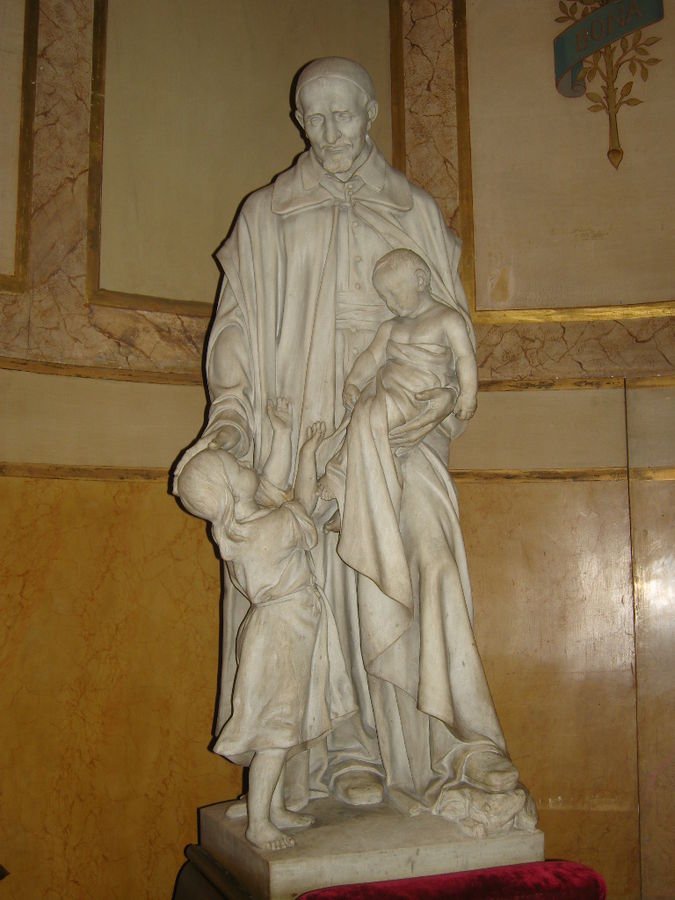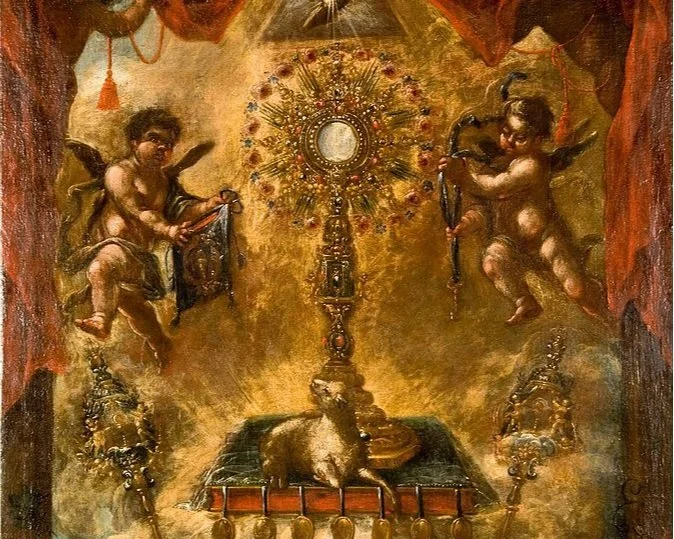University of Mary, Bismarck, ND is a destination for undergraduates who want to learn art in a Catholic environment and avoid neo-Marxist ideology.
Oh Happy Fault! God Permits Ugliness in the World So That Its Beauty Can Be Even Greater
Notes from the Dutch Spiritual Underground
The Baroque Style Exemplified: Tiepolo's Immaculate Conception
Let's Get Physical 4: Aspirational Prayer as an Adaptation of Psychological Tools for Improved Performance
Two-Part Webinar for Catholic School Pastors, Priests, Chaplains, Administrators, Teachers
Byzantine Catholic Seminary to Host 'Come and See' Weekend of Discovery
Let's Get Physical 3: Is Christian Yoga an Oxymoron?
St Vincent de Paul
Today is the commemoration of St Vincent de Paul (1581 - 1660).
He was born in France, his story is colorful, to put it mildly. He was captured and enslaved as a boy by Turks but escaped because he converted his master and both went to France. He is remembered as someone who devoted his whole life to the service of the poor, but this meant so much more than simply giving alms. He was aware that all people have both material and spiritual needs and to support his work he founded a congregation of priests for missionary work, groups of laymen to help paupers and galley-slaves, and, with St Louise de Marillac, the Sisters of Charity. See the article in the Catholic Encyclopaedia.
Here are three very different images of him to aid reflection. First an 18th century baroque style portrait. Second a statue in the church that bears his name in Paris, where he lived much of his life. And third a wax efigy that contains relics.
When I reflect on how his work was directed to the needs of the whole person, body and soul, I am struck by the fact that all people, rich and poor need so much more than basic material needs. Where there is a lack of human love, which speaks of God’s love, there is no dignity. We all need an environment that speaks of God's love and that envirnment is furnished by a culture of beauty.
The measure of our success in this, it seems to me, is not that the poorest part of the city is as wealthy as the richest. Equality of outcome is neither possible, nor even desirable. It’s measure is when the poorest parts of our cities are as beautiful as the wealthiest. This will be the outward sign that all, including both poor and rich live in dignity and are at home in the world; and that we are a society that really does care about their lives of the least amongst us, both in this world and the next.
Currently we are moving towards the polar opposite, every part of the city is as steadily becoming as ugly as every other. The richest part of town looks like a 1960s housing project ( refer you to a recent posting on the new builds on the Princeton campus). This is a sign that for all the rhetoric, our society has little regard for anyone and assumes that once material needs are met, nothing else matters.
This first step, as it did in the past, with beautiful churches that are open to all. When that element is missing, it is usually a sign that everything else that is important is absent too. When I think of our inner cities and their poorest neighborhoods today, I think we have a long way to go before we can consider ourselves a Great Society. As usual I have to start with myself and ask, what am I doing?
It is my struggle to answer this question satisfactorily that makes this week's article so short.
St Vincent, please pray for me.
Let's Get Physical, 2. - Yogi Beware!
The Good, and the Bad and Ugly: Harmony and Cacophony In Wales and Princeton
Let's Get Physical! 1 - Stretch Markets
Take Pontifex University's Master of Education in Catholic School Administration.
Pius XI On What Catholic Education Ought to Be, And What It Ought Not to Be (As Seen in Public Education)
The Corruption of Art Education in the Modern Era
The History of the Icon of the Transfiguration
Something Harmonious, Something Monotonous, Something Cacophonous
The Way of Beauty at St Stephen's Catholic School, Grand Rapids
Book Recommendation: Festal Icons by Aidan Hart
Hart directs us to apply what we read by participating in the feast itself through the liturgy. He explains how those feasts form a coherent whole so that each celebration simultaneously builds upon and directs us to consider every other while leading us to the still center, the portal of Pascha - Easter.
























